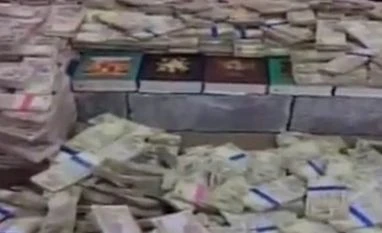The government has permitted banks and post offices to deposit junked Rs 500 and Rs 1,000 notes with the Reserve Bank by July 20.
This is the second window the government has provided to banks, post offices and cooperative banks for depositing the junked notes with RBI.
The earlier window was open till December 31, a day after the 50-day period of demonetisation of high value currency.
It further said that they should get the exchange value by credit to the account of such subject to the satisfaction of the RBI of the conditions specified.
RBI will accept deposits collected by any bank or post office by December 30, 2016 or by any District Central Cooperative Bank from November 10-14, 2016 should be deposited within 30 days, the notification said.
They should also cite valid reasons for non-deposit of the specified bank notes within the period, it said.
Old Rs 500 and Rs 1,000 notes were junked from November 8, 2016 to eliminate black money and curb infusion and circulation of fake Indian currency notes (FICNs).
India is the second-largest producer and consumer of currency notes. Circulation of banknotes has increased to 90.27 billion pieces from 64.58 billion over the last five years.
As on November 8, 2016, the total amount of currency in circulation was Rs 17.7 lakh crore, which included specified bank notes (SBNs) of Rs 500 and Rs 1,000.
As per the last official count released by RBI on December 13, banks had garnered Rs 12.44 lakh crore in banned notes till December 10.
This is the second window the government has provided to banks, post offices and cooperative banks for depositing the junked notes with RBI.
The earlier window was open till December 31, a day after the 50-day period of demonetisation of high value currency.
More From This Section
"Such specified bank notes may be deposited by such bank, post office or district central cooperative bank, as the case may be, in any office of the Reserve Bank, within a period of 30 days from the commencement of these rules," said a government notification.
It further said that they should get the exchange value by credit to the account of such subject to the satisfaction of the RBI of the conditions specified.
RBI will accept deposits collected by any bank or post office by December 30, 2016 or by any District Central Cooperative Bank from November 10-14, 2016 should be deposited within 30 days, the notification said.
They should also cite valid reasons for non-deposit of the specified bank notes within the period, it said.
Old Rs 500 and Rs 1,000 notes were junked from November 8, 2016 to eliminate black money and curb infusion and circulation of fake Indian currency notes (FICNs).
India is the second-largest producer and consumer of currency notes. Circulation of banknotes has increased to 90.27 billion pieces from 64.58 billion over the last five years.
As on November 8, 2016, the total amount of currency in circulation was Rs 17.7 lakh crore, which included specified bank notes (SBNs) of Rs 500 and Rs 1,000.
As per the last official count released by RBI on December 13, banks had garnered Rs 12.44 lakh crore in banned notes till December 10.
)